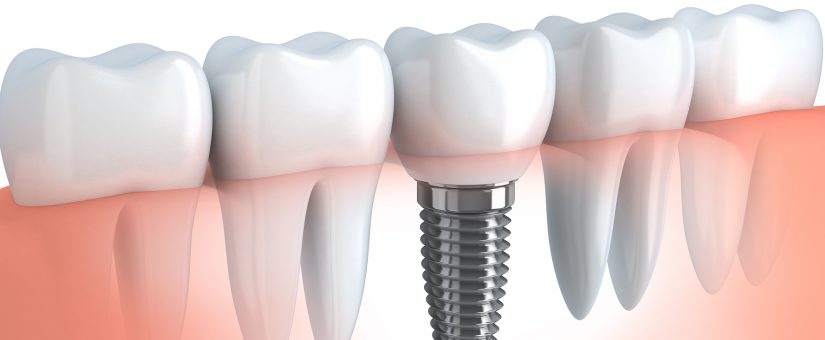
FAQs RELATED TO DENTAL IMPLANT TREATMENT, PART II
- On June 19, 2017
- Can I have implants in both my upper and lower jaw, implant treatment, teeth, The most frequent questions that patients ask before dental implant treatment
On a previous instalment, we addressed the edition of a pamphlet published by the European Association for Osseointegration, also known as E.A.O, whose name is Patientbooklets. This publication answers the 56 most common questions requested during dental consultations, when treating the possibility of doing therapy with dental implants. Since the answers provided do not represent specific situations, we encourage our patients to ask for our dental practitioners’ opinion, as it is the best alternative. I have included six new questions and answers today, so if you want to check Patientbooklets, you can visit E.A.O.’s webpage or this link: https://www.eao.org/en
- What materials are used for implant restorations?
Once the implant has been placed, a restoration (a prosthesis) is placed on it. Removable prostheses are normally made of acrylic material. Fixed restorations (crowns and bridges) have an inner framework of metal or a strong ceramic material. A tooth-coloured ceramic material (porcelain) is then fused on to this framework. The inner core of metal can be made from various alloys. The most common metals used are various types of noble alloys or titanium. Restorations that are made of an inner framework of metal combined with a porcelain coating are called ‘metal-ceramic’. Restorations that are made entirely of porcelain are called ‘all-ceramic’. All-ceramic restorations are normally not recommended for the replacement of molars.
- Is titanium the only biocompatible material?
Various materials can be biocompatible, but implants made of commercially pure titanium are the most common ones. Implants made of ceramic materials (e.g. zirconium oxide) have been introduced in recent years, but long-term studies of their survival rates are not available yet.
- I am allergic to titanium. Can I still have dental implants?
Dental implants are normally made of commercially pure titanium. Titanium-allergy is quite rare and there have been very few cases reported. If you are allergic to titanium, it may be possible for you to have an implant made of another specific, biocompatible material.
11.What is a metal-free dental implant?
Metal-free dental implants are implants made out of non-metallic materials, such as ceramics (e.g. zirconium oxide). The advantage of these types of implants is that ceramic is white, whereas titanium has a grey, metallic colour. If you are allergic to titanium, metal-free dental implants may be a good alternative. However, allergy to titanium has only rarely been reported.
- Do titanium implants have a proven track-record?
There is currently limited data available on the long-term performance of all-ceramic implants (e.g. zirconium oxide).
- Can I have implants in both my upper and lower jaw? Can two implants bite against each other safely, like natural teeth do?
Implants can be inserted both into the upper and the lower jaw. If you have lost teeth in both jaws, these can usually all be replaced by implant-retained prostheses. Implants in the upper and lower jaw can safely bite against each other. However, the attrition of implant crowns and bridges is normally different from the attrition of natural teeth. To minimise implant loss or damage, your bite should be regularly checked by your dentist.

